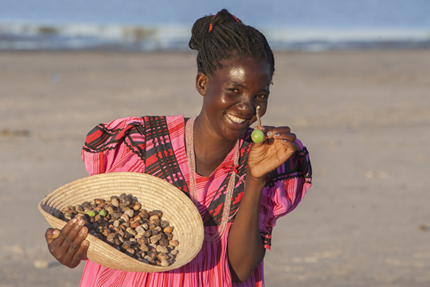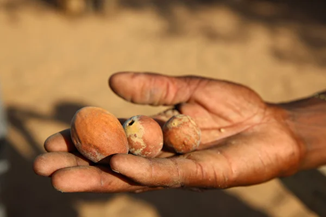Home of the finest organic oils in Africa






We are your premier provider of a selection of African savanna-grown organic oils, including:
Marula oil is widely regarded as Africa's "miracle oil". In order to understand Marula oil's unique legacy and properties, you need to experience how it feels on your skin before studying the long and storied history. Marula oil is unique in that it has a high concentration of antioxidants and oleic acid, both of which are essential for the protection and preservation of healthy skin.
Marula Seed Oil is cold-pressed from the fruit’s nut and has a skin penetration rate of 17%, making it one of the greatest carrier oils. Popular for its organic and fair-trade nature, the oil is utilized in luxurious face and hair care products. Using a natural pressing and filtration method, virgin marula oil is derived from fresh raw seeds. The therapeutic characteristics of marula oil make it an ideal ingredient for skin care and cosmetic products. The oil is inherently stable, includes anti-oxidants, vitamins E and C and unique in its anti-aging qualities due to the high content of antioxidants. Marula oil is an active ingredient in cosmetology products due to its ability to hydrate, smoothen and moisturize the skin, hair and nails.
The kernels or nuts contained within the fruits of the marula tree are the source of marula oil. Typically, the seeds are boiled or crushed to extract the oil. The tree is native to tropical sub-Saharan Africa, where it provides food and commerce items, and is revered for its historical and cultural significance. The marula tree is a symbol of chastity and is also known as the "marriage tree". In Zulu culture, individuals who marry beneath its branches are thought to be blessed with fertility. As a result of
its high vitamin C concentration, the fruit is commonly referred to as "king's food". It is also used to manufacture Amarula cream, a liqueur with distinctive flavors that is used in many sweets, cocktails, and dishes in South Africa, but is also a global delicacy.
Chris Houghton, from Anglia Oils' Bulk Specialty Division, authored an instructive article titled "New Natural Oils and their Properties”, stating:
“The quest for a trendy, marketable and effective component has led to the discovery of a new oil known as marula oil. Because it is easily absorbed, it can be used as a light body oil in aromatherapy or as the focal point for a range of tropical moisturizing lotions. These applications are both possible due to its high absorption rate. Because of its remarkable resistance to oxidation, marula oil is an excellent candidate for use in the formulation of a contemporary cosmetic product.”
Rural populations in Mozambique, Namibia and South Africa consume marula kernels and oil as an essential part of their diet. It also plays an essential function in the San nation’s diet.
The oily kernels are consumed as nuts, either raw or roasted, or pressed into a cake that can be consumed on its own. Occasionally, the cake is used to feed animals. Additionally, the kernels are crushed or made into a powder that is added to sauces, soups, cookies and oatmeal. Many indigenous people consider the kernels to be the "Food of Kings" due to the effort necessary to obtain even a little portion of the kernels from the hard seeds.
Due to their high fat, protein and mineral content, the seeds are an important emergency food source during times of food scarcity.
It has also been reported that the oil has food-preservative characteristics, and Venda and Shangaan people in northern South Africa use it to drip onto meat before it is air-dried and stored as biltong or jerky. The meat is cooked over boiling water, gradually moistened with marula oil, and placed in a cold location. This method preserves meat for up to a year.
The Pedi people of South Africa's Limpopo Province uses the seeds in porridge and as a condiment, and Tonga women in Zambia and Zimbabwe have utilized roasted marula nuts as food, and marula oil as a skin softening and meat preservative for years.
+27 82 450 5656
louis@savannaoils.com